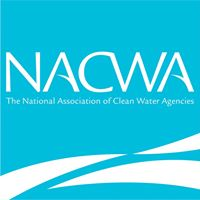Washington, D.C. – (RealEstateRama) — The National Association of Clean Water Agencies (NACWA) applauds the Senate for passing Water Resources Development Act (WRDA) of 2016 on a 95 to 3 vote, demonstrating the overwhelming bipartisan support that exists in Congress for critical investments in our nation’s clean water infrastructure. S. 2848 is a milestone legislative achievement and puts the Senate on record in favor of providing significant new investment tools and common sense regulatory reforms to help all Americans afford investments in clean and safe water.

“NACWA applauds the Senate for coming together in a strong bipartisan fashion to make significant new investment for clean water and providing stronger tools to help communities afford this infrastructure,” said Adam Krantz, Chief Executive Officer of NACWA. “This bill is the most significant legislative effort to date in increasing federal investment in clean water and making a number of needed policy changes to the Clean Water Act involving affordability, integrated planning, and financing. NACWA members have been advocating for many of these policy measures over recent years, and we are pleased to see Congress responding. We look forward to continuing discussions on these issues as the House considers its bill.”
The Senate bill contains a host of measures that will go a long way in helping communities pay for and ensure ratepayers have access to safe and clean water, including:
- Sec. 7303 establishing a Water Infrastructure Trust Fund fueled by a voluntary consumer goods label to spur private investment in the Clean Water and Drinking Water State Revolving Funds, and authorizing a study of the feasibility of establishing a low-income ratepayer assistance program;
- Sec. 7302 permanently authorizing the Water Infrastructure Financing and Innovation Act (WIFIA);
- Sec. 7201 authorizing $1.8 billion to help communities deal with extreme wet weather; and,
- Sec. 7203 codifying EPA’s Integrated Planning framework, providing communities more time to meet regulatory obligations, and establishing an Office of Municipal Ombudsman to provide a voice for municipalities struggling to provide clean and safe water.
“NACWA is grateful for the efforts of key Senate champions who have steadfastly shown a commitment to these important measures and who have worked hard over many years to secure these legislative victories, including the Chair and Ranking Member of the Senate Environment and Public Works Committee, Senators James Inhofe (R-OK) and Barbara Boxer (D-CA), Senator Sherrod Brown (D-OH), Senator Roy Blunt (R-MO), Senator Rob Portman (R-OH), Senator Ben Cardin (D-MD) and Senator Cory Booker (D-NJ),” said Krantz.
There is little doubt that our nation’s water quality has significantly improved since enactment of the Clean Water Act (CWA) in 1972, largely due to investments in wastewater infrastructure made by Congress and America’s ratepayers. In fact, since the law’s enactment, the number of fishable and swimmable waterways has increased nearly 50%. Yet improvements in water quality have become more challenging as sources of pollutants have grown more complex, including growing water quality impairments from non-point sources, and many of our wastewater and stormwater collection and treatment systems require additional investments.
Paying for clean water services has primarily rested with local ratepayers, who have seen clean water bills increase at nearly twice the rate of inflation each year for the past decade. Today, 40% of households across America are paying more out of their disposable incomes for clean water services than what EPA says is affordable. The affordability of water, wastewater and stormwater bills is becoming so acute for lower-income ratepayers that some view it as a significant civil rights and environmental justice issue.
On average, ratepayers are spending nearly $100 billion annually for drinking water and clean water services. Despite this investment, EPA’s quadrennial needs surveys indicate that well over $600 billion in additional spending will be needed over the next twenty years for the nation’s water infrastructure needs.
Today’s Senate vote in support of S. 2848 sends a message that local ratepayers should not be expected to shoulder this burden alone, and that there are common sense CWA reforms that can help make clean water more affordable.
NACWA looks forward to continued work ahead to ensure these measures are fully enacted and urges the House to quickly pass its package so that a conference committee can complete work on a final WRDA package for passage by the full Congress later this year.
###
About NACWA
The National Association of Clean Water Agencies (NACWA) is the leading advocate for responsible national policies that advance clean water. NACWA represents the collective interests of America’s clean water utilities nationwide – and their clear commitment to America’s waters. For over 40 years, NACWA has been the clean water community’s voice in Congress, at the U.S. Environmental Protection Agency and other federal agencies, as well as in the media and in the courts. To learn more about NACWA visit us at www.nacwa.org.
CONTACT:
Patricia Sinicropi
Senior Director, Legislative Affairs
Kristina Surfus
Manager, Legislative Affairs
















